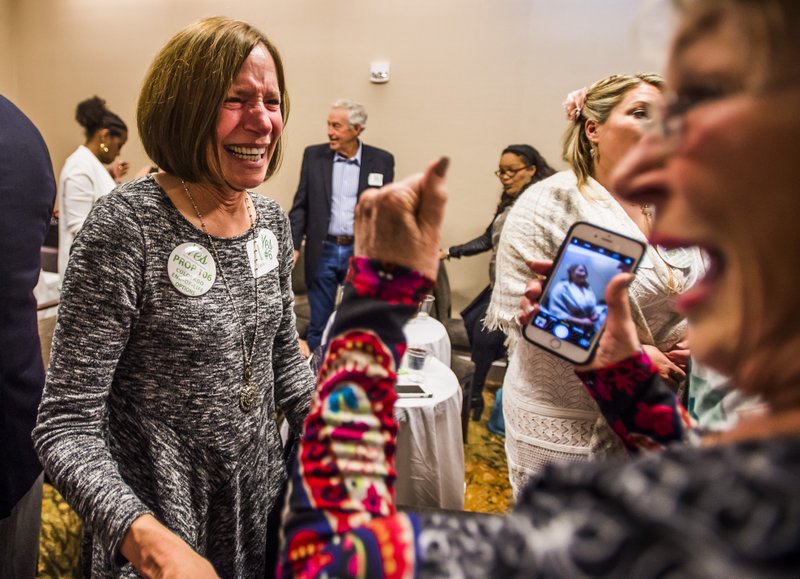Voters in a scattering of states tightened gun-control laws and approved increases in the minimum wage. In all, more than 150 measures appeared on statewide ballots in Tuesday's election.

Gun control was on the ballot in four states, including California, which already has some of the nation's toughest gun-related laws. Voters there approved a measure that will outlaw possession of large-capacity ammunition magazines, require permits to buy ammunition and extend California's program that allows authorities to seize firearms from owners who bought guns legally but are no longer allowed to own them.
Washington state approved a ballot measure that will allow judges to issue orders temporarily seizing guns from people who are deemed threats.
In Maine and Nevada, a group founded by former New York City Mayor Michael Bloomberg spent millions promoting ballot measures that would require background checks on nearly all gun sales and transfers. The measure was approved in Nevada but was rejected in Maine.
With Congress unable to agree on an increase in the federal minimum wage of $7.25 per hour, numerous states and cities have taken action on their own. In this election, Arizona, Colorado and Maine voters approved measures phasing in a $12 minimum hourly wage by 2020. In Washington state, where the minimum wage is $9.47 an hour, voters approved a measure raising that to $13.50 an hour by 2020.
In Nebraska, voters reinstated the death penalty, reversing the state Legislature's decision last year to repeal capital punishment. Nebraska has not executed an inmate since 1997. Ten men currently sit on death row.
Two other states voted on capital punishment. California had two competing measures on its ballot, one to repeal its rarely used death penalty and the other to speed up appeals so convicted murderers are actually executed. The repeal measure was rejected; the other measure received about 51 percent of the votes counted by Wednesday morning.
Oklahoma residents approved a measure to make it harder to abolish capital punishment. It seeks to ensure the state has a way to execute prisoners even if a given method is blocked.
Colorado voters approved a measure that will allow physicians to assist a terminally ill person in dying. That's already a practice in five other states. Coloradans defeated a proposal that would have set up the nation's first universal health care system.
Among the other topics addressed by ballot measures, voters in Colorado, Missouri and North Dakota rejected proposals to raise taxes on cigarettes and other tobacco products. Californians approved a measure that raises cigarette prices by $2 a pack and places new taxes on electronic cigarettes. California voters also repealed a nearly 2-decade-old law that limited bilingual education in public schools.
A Section on 11/10/2016

